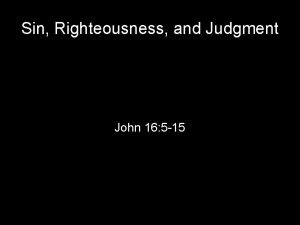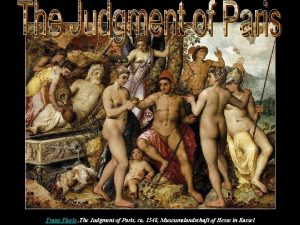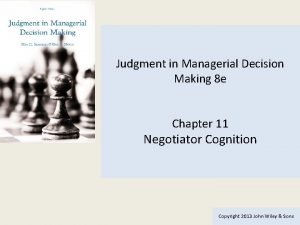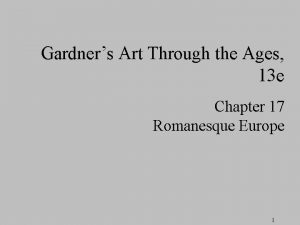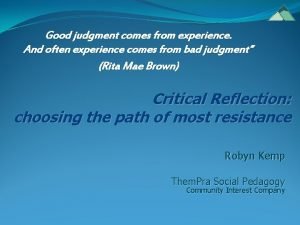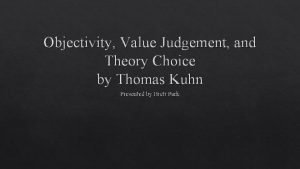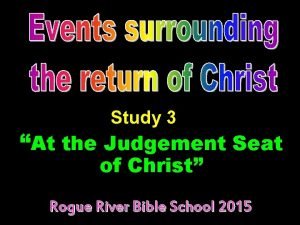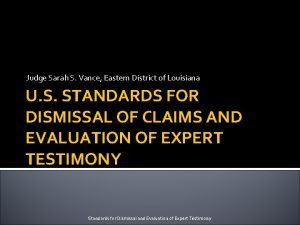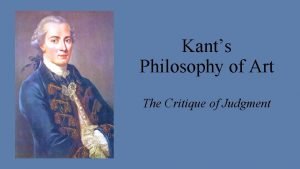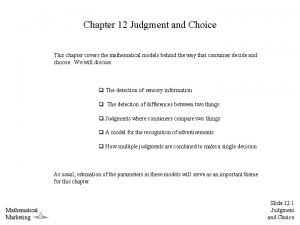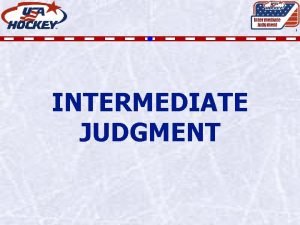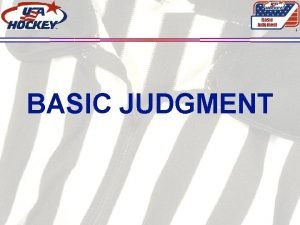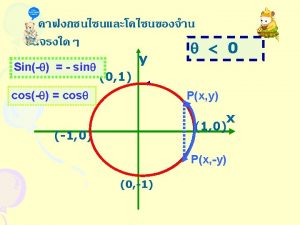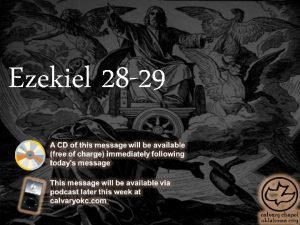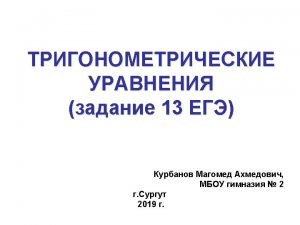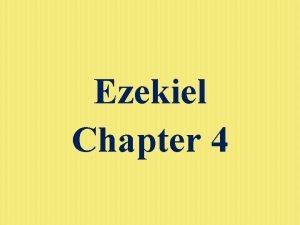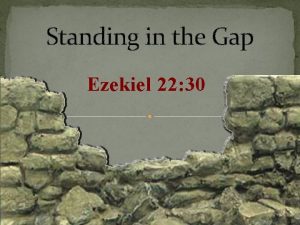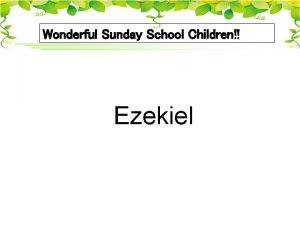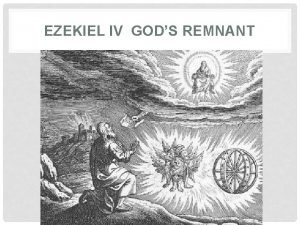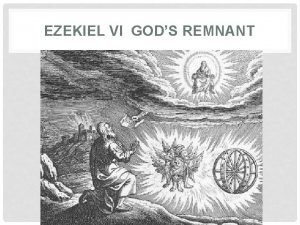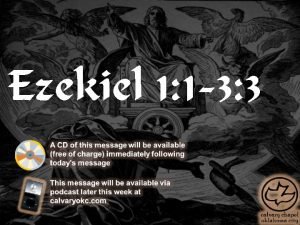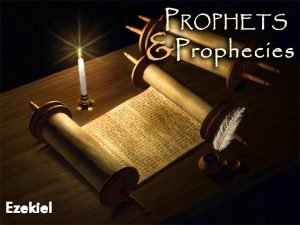3 Sin Judgment in Ezekiel Ezek 4 7
















![C. A Theology of Sin and the God Who Judges (April, ‘ 84), 148] C. A Theology of Sin and the God Who Judges (April, ‘ 84), 148]](https://slidetodoc.com/presentation_image_h2/01a98d7e21cca2f506d51bf341a6ca32/image-17.jpg)
- Slides: 17

3. Sin & Judgment in Ezekiel Ezek. 4 -7; 12 -24; 25 -32

A. Sin and Judgments of Israel: 1. Symbolic Sign Judgments: 3. 22 -27; 4. 15. 17; 12. 1 -20; 21. 6 -7, 18 -23; 24. 15 -24, 2527; 33. 21 -22 [Compare: Hos 1 -3; Isa 7 -8, 20. 2 -4; 1 Kgs 11. 29 -31] • “The function of a sign, like its subject, shows that the main thing about it is not that it is miraculous or that it is exciting to watch, for the intention of a sign is not to terrify the onlooker, but to mediate an understanding or to motivate a kind of behavior. ” [Helfmeyer, 171] • 32 in O. T. according to Fohrer

A. Sin and Judgments of Israel: • Form: – Yahweh's commands to perform the action – the report of its performance – and its interpretation, often as the word of Yahweh a. The sign of Dumbness: 3. 22 -27; 24. 1524(25 -27); 33. 21 -22 b. Jerusalem under siege and taken captive: 4. 1 -5. 17; 12. 1 -20 c. Groaning: 21. 6 -7 d. Marking the road: 21. 18 -23.





2. Oracles of Judgment: 6 -7; 13; 15 -16; 20; 22 -23 • The Sin/Judgment theme, especially theme of unconditional disaster given by Ezekiel from the time of his call (593/2) till the final destruction of Jerusalem (587). As Fishbane puts it the, “dark chords of fatality which echo consistently from shortly after the commission theophany in July 593 (1. 2 f) until the commencement of the siege of Jerusalem in January 588 (24. 1). ” [Fishbane, 133] a. Historical Context: i. False Prophets and Prophetess: 13. 1 -23 (A double oracle against the false prophets and prophetess, which is said to compound the sin: 13. 2 -9, 10 -16; 13. 17 -21, 22 -23. ) 22 -23. – N. B Jer 29. 1, 15

General Statements about False Prophets 1. Parallels in: Jer 23 -29 2. “The test of the truth lies in God who makes known his will through revelation. The contrast is not an existential one between a past, horizontal tradition about God and a present, vertical word from God. Rather, the truth of prophecy is determined by God’s confirmation in action. ” [Childs, Old Testament Theology in a Canonical Context, 139]

General Statements about False Prophets 3. Different Problems: – Deut 18 = “Deuteronomy is seeking to protect the community against false prophets who terrorize the community with threats of coming disaster. ” [Childs, 133] – Jeremiah 28 = “Jeremiah is seeking to protect the community from the false prophet who lulls the people to sleep with false hopes of peace and security. ” [Childs, 134]

2. Oracles of Judgment: 6 -7; 13; 15 -16; 20; 22 -23 ii. The End!: 7. 1 -17 - Ezekiel’s message in contrast with the false prophets was that the “END” had come (7. 2), that there would be “disaster after disaster!” (7. 5), for the Day of YHWH “comes” (7. 10). b. Judgment even upon the Rural areas: 6. 1 -14 - Idolatry c. Cultic Sins: 8. 5 -17 (To be considered the with next unit!) d. Destroying the Root Metaphor: 15. 1 -8 - “The prophet is addressing his companions in exile as those who are summoned to acknowledge Yahweh’s judgment upon Jerusalem. Since the final catastrophe upon Jerusalem is still to come, we must think of the period before 587 BC” (Zimmerli, 319) – N. B. Isa 5. 1 -7 e. Two Allegorical Tales: 16. 1 -63; 23. 1 -49

B. Sin and Judgments of the Nations: 25 -32; 35 • Important OAN Passages: Isa 1323; Jer 46 -51; Ezek 25 -32; Amos 1 -2 • What is theology of the OAN?

C. A Theology of Sin and the God Who Judges 1. History of Sin in the OT a. Many Hebrew terms: b. Sin in Primeval History: Gen 3; 4; 9. 20 -27; 6. 1 -4; 11. 1 -9 c. The thesis of Gen 8. 21 d. Sin in the history of God's People: Forgetting the Covenant.

C. A Theology of Sin and the God Who Judges 2. Prophecy & Judgment – Its History: • “The prophecy of judgment is the most noticeable religious phenomenon in a particular stage of Israel’s history, the stage from the beginning to the end of the monarchy (even though it also has a pre- and post-history). ” [Westermann, Elements of OT Theology, 126] • The prehistory of judgment prophecies is connected with what happened before, i. e. , God’s saving act.

C. A Theology of Sin and the God Who Judges 2. Prophecy & Judgment – Its History: • “The prophets appeared because Israel had threatened its own existence by turning away from its God. Their accusations and announcements of judgment were concerned with Israel’s existence. Thus the saving God is now the judging God; the judgment announced by the prophets is the necessary continuation of the saving working of God. ” [Westermann, 126] • “This announcement of God’s judgment stands in the middle between the announcement of God’s saving before and after. ” [Westermann, 127]

C. A Theology of Sin and the God Who Judges 3. God's Judgment: a. “A dominant feature of Ezek 4 -24 is that YHWH will sent his wrath against Israel for her sins” [Fishbane, “Sin and Judgment in the Prophecies of Ezekiel, ” Interpretation, 38: 2, (April, ‘ 84), 147] b. This judgment is not an impersonal principle of natural balance or retribution, but a personal justice of Israel’s covenantal God. [Fishbane, “Sin and Judgment in the Prophecies of Ezekiel, ” Interpretation, 38: 2,
![C A Theology of Sin and the God Who Judges April 84 148 C. A Theology of Sin and the God Who Judges (April, ‘ 84), 148]](https://slidetodoc.com/presentation_image_h2/01a98d7e21cca2f506d51bf341a6ca32/image-17.jpg)
C. A Theology of Sin and the God Who Judges (April, ‘ 84), 148] This theme ties directly with the understanding in Ezekiel that God is faithful and free. c. To “Know the LORD” through God's judgment. (80 x+)
 Sin righteousness and judgement
Sin righteousness and judgement Nyatakan sin 4x - sin 6x sebagai bentuk perkalian
Nyatakan sin 4x - sin 6x sebagai bentuk perkalian The judgment of paris summary
The judgment of paris summary Judge righteous judgment
Judge righteous judgment The judgment of paris
The judgment of paris Judgment in managerial decision making
Judgment in managerial decision making Ncsbn model of clinical judgement
Ncsbn model of clinical judgement Visions of hildegard of bingen
Visions of hildegard of bingen Good judgment comes from experience
Good judgment comes from experience Objectivity value judgment and theory choice
Objectivity value judgment and theory choice Judgment seat of christ
Judgment seat of christ Clinical judgment definition
Clinical judgment definition The primary responsibility of all drivers is:
The primary responsibility of all drivers is: Judge sarah vance
Judge sarah vance Judgment massage
Judgment massage Art as a disinterested judgement ppt
Art as a disinterested judgement ppt Example of value judgment
Example of value judgment Judgment chapter 12
Judgment chapter 12
